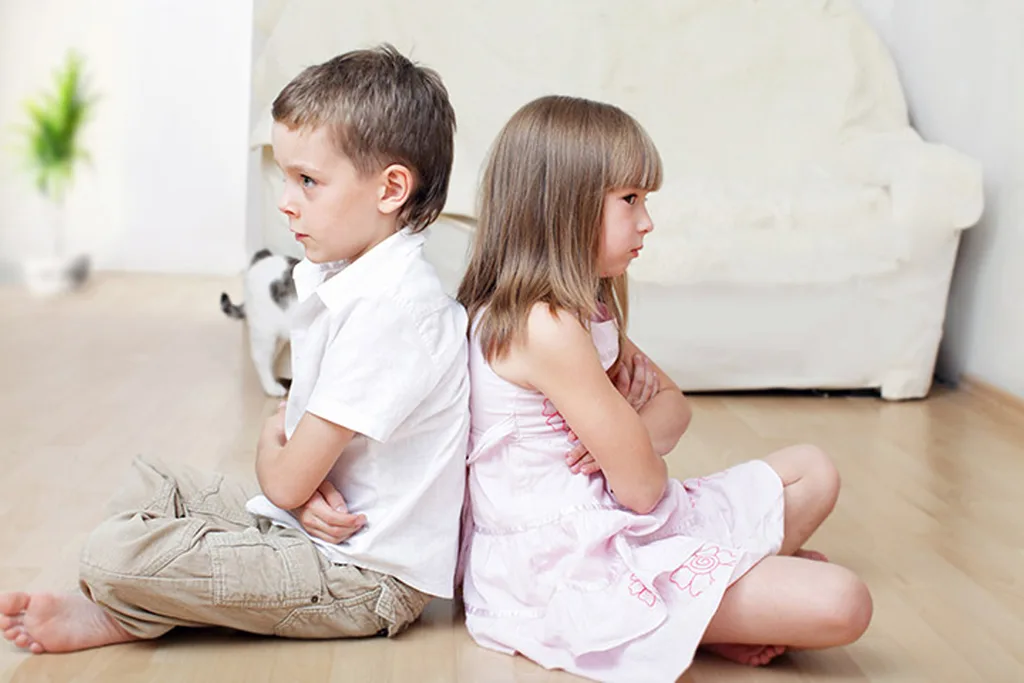Do your toddlers seem to fight with each other every 10 or 15 minutes? Frustrating, isn’t it! You might be surprised to know that sibling rivalry is fairly normal. Varied research has told us that siblings under five years of age fight regularly, typically from once an hour, to as often as once every 10 minutes or so. Therefore, you are not a bad parent if your toddlers frequently erupt, whether it is outright fighting, competing for your attention, or fighting to dominate your time.
Why the conflict?
There are many reasons why kids get into sibling rivalry battles. Remembering that they are just toddlers, the most common reason is simple jealousy and naturally competing for attention or affection. While siblings actually love each other, their limited empathy also leads them to fight with who they perceive to be rivals for time, attention or affection. Similarly, toddlers are jealous when their sibling has something they want, such as a favourite toy. As they have limited language skills, it is easier to just snatch and fight, rather than to verbally express complex needs.
Different stages of development
A younger child might not yet understand ownership, so they just grab a desired toy or possession, and refuse to give it up. Naturally, a battle erupts. Similarly, an older toddler might now want a little more independence, and begin pushing away a much younger toddler.
Differing personalities can also lead to rivalry – an anxious, clingy child might fight more for his parents’ attention, which a more relaxed child might eventually resent. It can also be as simple as toddlers testing their strength and boundaries, as all animals do, like baby puppies wrestling, or baby lions clawing each other. However, we find that unhealthy sibling rivalry occurs more so in a home where parents argue, verbally fight, or don’t resolve conflict reasonably and effectively.
Overall, it is normal for siblings to be rivals sometimes and to fight sometimes, as long as they also show love to each other, share sometimes and take turns. The exception is when rivalry is better described as abuse, such as a younger child physically hurting an older sibling by viciously biting. Or an older brother using more advanced language skills and bigger physical stature, to intimidate, frighten and aggressively control his younger sister. Such abuse must be stopped immediately and the abusive child removed for quiet thinking time.

Building resilience
When I present parenting talks, sibling rivalry is often the most common topic up for discussion. Parents are surprised to hear that fighting can actually be acceptable, even somewhat healthy, as long as it occurs in moderation and is well managed.
We know that brothers and sisters who battle, but who are guided to find solutions and to resolve conflict, tend to be more resilient, more successful in managing social conflict, and less likely to be bullied. Similarly, toddlers who engage in moderate sibling rivalry learn how to resolve conflict and to not fixate on issues, rather to live more in the moment and not hold grudges. Through this rivalry, toddlers learn to express emotions, to assert themselves and to self-regulate. This is actually better than a child suppressing his emotions
is off limits, and don’t give in for the sake of peace. Initially, ignore her tantrums, rather than trying to reason, until she is over two years of age. Remember that tantrums are loud and distressing, but toddlers aren’t actually hurting or in danger.
Learned behaviour
A parent’s role is critical. Toddlers are much more likely to be able to resolve conflict if they see their parents calmly asserting themselves and showing how to reasonably resolve arguments, move forward and be caring and loving again. We also know that toddlers initially don’t have the skills to resolve battles. Therefore, as parents, you need to help your children find solutions and guide them toward resolving conflict. This might be teaching them how to take turns. Place lots of positive feedback on your child when he agrees to share, and is nice and co-operative. A common error is to take sides, or to referee and find fault with one child.
A better strategy is to treat your children equally, affirming that they both aren’t being nice to each other, and both need quiet thinking time, or time away from toys. This should be followed by practising getting on with each other and giving positive reinforcement.
Finally, positives always beat punishment and reaction. Try to focus on catching your toddlers being kind to each other and sharing nicely, giving them genuine regard and praise.









